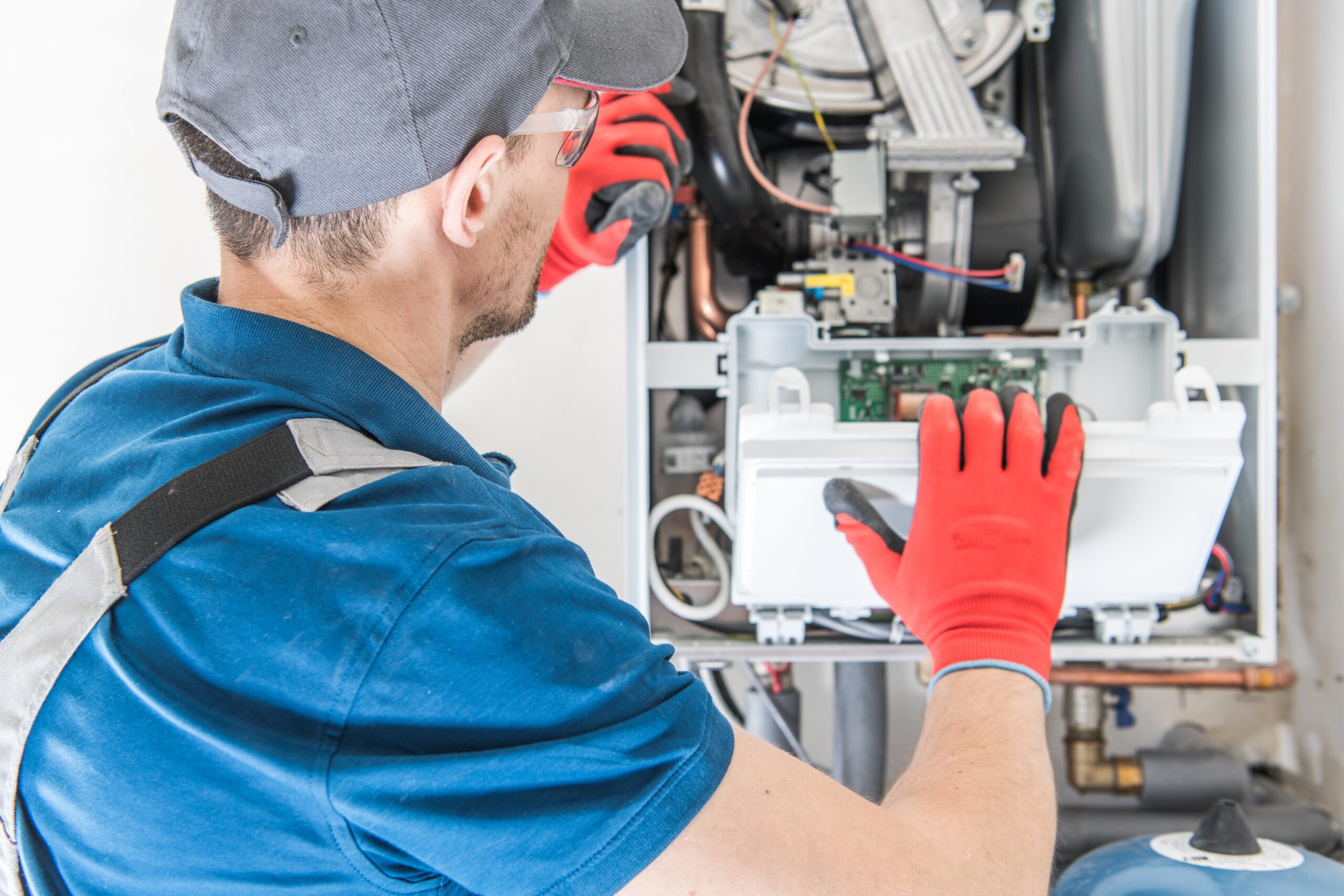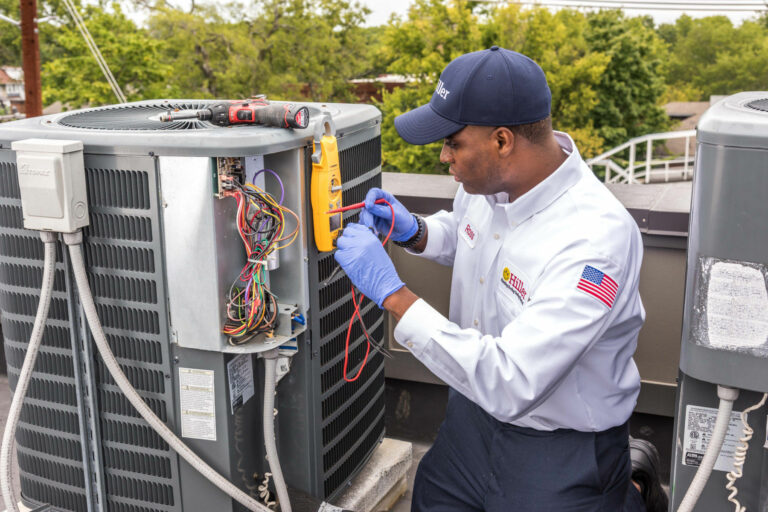Picking Between a Heatpump and Furnace: Trick Considerations for Your Heating And Cooling Demands
When evaluating heating options for heating and cooling requires, the decision in between a warm pump and a heater can be intricate. Each system offers unique benefits tailored to particular environments and energy performance goals. Recognizing these differences is necessary for making an enlightened selection. Trick aspects such as installment prices and ecological influence better complicate the option process. Which choice absolutely aligns with one's convenience and sustainability choices? The complying with sections will explore these considerations carefully.
Understanding Warm Pumps: Just How They Work and Their Advantages
While many property owners take into consideration different heating alternatives, recognizing just how heatpump feature and their benefits can significantly affect their decision. Heatpump operate by transferring heat instead of producing it. In the winter months, they extract heat from the outside air or ground and move it indoors, while in the summertime, they reverse this procedure, cooling the home by eliminating warmth outside. This double functionality makes them flexible for year-round environment control.One of the main advantages of warmth pumps is their energy efficiency. They make use of considerably much less electrical power compared to conventional furnace, possibly resulting in reduced energy costs (heat pump installation ooltewah tn). Additionally, warm pumps have a smaller sized carbon impact, making them an ecologically friendly choice. They also call for much less upkeep than traditional systems, adding to long-term price financial savings. Overall, understanding the technicians and benefits of warm pumps can aid house owners make notified choices concerning their heating and cooling requirements
Exploring Heaters: Kinds, Operation, and Advantages
Furnaces can be found in numerous types, including gas, electric, and oil models, each with distinctive operational mechanisms. Comprehending these distinctions is important, as they influence performance and home heating performance. In addition, heaters supply many benefits, such as constant warm outcome and integrity in colder environments.
Kinds of Heating systems
Furnace can differ substantially in layout and operation, with heaters being a popular choice among homeowners. There are several sorts of heaters, each making use of various fuel sources and modern technologies. Gas heaters prevail, leveraging gas to produce warm efficiently. Electric heating systems, on the various other hand, make use of electric resistance to generate heat, often preferred for their simple setup. Oil heating systems, while much less common, work in areas with limited gas accessibility (heat pump service). Additionally, condensing heaters maximize power effectiveness by catching and reusing exhaust gases. Each type operates through a system of warmth exchangers and ductwork to disperse cozy air throughout a home. Understanding the differences between these furnace kinds is important for educated HVAC decisions
Advantages of Furnaces
For homeowners looking for reliable warmth during chilly months, the benefits of heaters are considerable. Furnaces provide constant heating, making certain also temperatures throughout the home. They are specifically reliable in extreme cool, commonly outperforming heatpump in freezing conditions. Various types, including gas, electrical, and oil heaters, offer adaptability to fulfill diverse demands and preferences.Furnaces also tend to have reduced initial installation expenses contrasted to warmth pumps, making them a much more easily accessible choice for many. Their durable design adds to a much longer life expectancy, with many units lasting over 15 years with correct upkeep. In addition, contemporary heaters are often equipped with advanced innovation for boosted performance, which can bring about decreased energy expenses. In general, furnaces continue to be a reputable selection for reliable home heating.

Power Effectiveness: Comparing Warmth Pumps and Furnaces
When contrasting power performance between heatpump and heating systems, the Seasonal Power Performance Proportion (SEER) plays an essential duty in figuring out efficiency. In addition, a functional price analysis exposes the long-term monetary effects of each system. Recognizing these elements can direct home owners in making educated choices concerning their home heating remedies.
Seasonal Energy Performance Proportion
Energy performance plays an important duty in the decision-making process between warm pumps and furnaces, specifically when thinking about the Seasonal Power Effectiveness Ratio (SEER) This metric measures the cooling performance of heatpump over an entire air conditioning season, offering a standardized means to evaluate performance. Higher SEER ratings indicate greater energy performance, equating to lower energy consumption and minimized utility expenses. On the other hand, furnaces are usually analyzed utilizing the Annual Gas Use Performance (AFUE) rating, which shows home heating performance. When comparing these two systems, property owners must prioritize SEER rankings for heatpump, as they directly impact total energy financial savings and environmental sustainability. A thorough understanding of SEER can especially influence the long-term contentment and cost-effectiveness of the chosen a/c option.
Functional Expense Evaluation
Recognizing the functional expenses connected with heatpump and heaters is crucial for house owners assessing their alternatives. Warm pumps normally provide higher power effectiveness, converting electrical energy into heat with marginal waste. This results in lower regular monthly energy expenses, specifically in modest climates. Alternatively, standard heaters, especially gas versions, might have reduced in advance expenses yet can incur greater functional expenses gradually because of sustain rates and efficiency ratings.Moreover, warmth pumps can function as both heating and cooling down systems, potentially reducing the need for separate heating and cooling units. While initial investments for heatpump may be higher, their long-lasting financial savings in energy effectiveness can make them a much more cost-efficient choice for many houses. Cautious analysis of regional energy rates is important you can try this out to figure out the finest alternative.
Setup Prices: What to Expect for Each Heater
Installment costs for heating unit can vary considerably in between heatpump and furnaces, influencing property owners' choices. Heatpump usually have higher upfront installation expenses, typically ranging from $3,500 to $8,000, depending upon the device size and complexity of installment. This includes the outdoor device, interior handling system, and necessary ductwork modifications. Conversely, furnaces tend to have reduced first costs, averaging in between $2,500 and $6,000, which can be appealing for budget-conscious property owners. Installment expenses can enhance if substantial ductwork is required.Moreover, the selection of gas type for heating systems-- all-natural gas, lp, or electric-- can additionally influence installation costs. While heatpump use energy performance, their preliminary financial investment might discourage some purchasers. Ultimately, reviewing installation prices alongside long-lasting cost savings and efficiency will aid property owners in making educated decisions concerning their heating unit.
Environment Considerations: Which System Performs Much Better in Your Area
Exactly how do climate conditions influence the effectiveness of furnace? The efficiency of heatpump and heaters can differ considerably depending upon the neighborhood climate. In moderate environments, heatpump succeed by successfully transferring warm from the outside air, making them an energy-saving choice. Their effectiveness diminishes in exceptionally chilly temperatures, where they might struggle to remove adequate heat. On the other hand, heating systems, particularly gas versions, offer trustworthy and consistent warmth despite outside problems, making them preferable in cooler regions.In areas that experience milder winter seasons, warm pumps can run efficiently year-round, giving both cooling and heating. In comparison, areas with severe winters typically gain from the effectiveness of heaters. Inevitably, understanding continue reading this the neighborhood climate is essential when making a decision between a heatpump and a heater, as it straight affects their operational performance and overall efficiency.
Upkeep Demands: Long-Term Take Care Of Heat Pumps vs. Furnaces
While both heatpump and heating systems need regular maintenance to guarantee peak efficiency, their particular needs and treatment regimens vary significantly. Furnaces normally require much less frequent focus, with annual inspections sufficing to inspect for gas leaks, tidy filters, and evaluate overall functionality. Their less complex style often permits for uncomplicated repairs.In comparison, heat pumps necessitate biannual upkeep due to their double function in cooling and heating. This includes cleaning coils, checking refrigerant levels, and guaranteeing that both the interior and exterior systems work at their best. Furthermore, heatpump upkeep usually includes even more elaborate components, making expert servicing essential.Neglecting maintenance can lead to lessened effectiveness and boosted power costs for both systems. Inevitably, property owners must think about these long-lasting care demands when picking in between a warm pump and a heater, as aggressive upkeep can extend the life expectancy and efficiency of either system substantially.
Ecological Impact: Choosing a Sustainable Heating Option
The environmental impact of heating unit is a crucial assessment for house owners looking for lasting choices. Warm pumps are normally extra energy-efficient than conventional furnaces, as they transfer warm instead of produce it, considerably decreasing carbon emissions. By using renewable energy resources, such as geothermal or air-source heat pumps, home owners can better minimize their ecological footprint.On the other hand, all-natural gas furnaces give off greenhouse gases and add to air pollution, though they usually provide higher warm outcome. Improvements in innovation have led to the advancement of high-efficiency heating systems that reduce emissions.Ultimately, selecting a home heating system entails weighing performance versus ecological impact. Homeowners are encouraged to assess local energy sources and incentives for renewable systems, ensuring a choice that lines up with click for more info both personal convenience and environmental duty. The decision influences not just immediate comfort but also long-term sustainability and environmental health.
Regularly Asked Concerns
The Length Of Time Do Warmth Pumps and Furnaces Typically Last?
The lifespan of warmth pumps commonly varies from 15 to two decades, while furnaces can last in between 15 to thirty years. Normal upkeep significantly affects their long life and performance in supplying home heating solutions.
Can I Make Use Of a Warmth Pump in Extremely Cold Climates?
Heat pumps can run in extremely cold climates, but their effectiveness decreases as temperature levels drop. In such problems, extra heating resources may be required to preserve comfortable interior temperature levels and guarantee peak performance.

What Is the Sound Degree of Warm Pumps Versus Furnaces?
The noise levels of warmth pumps and furnaces differ significantly. Normally, heat pumps run even more silently than typical furnaces, making them more suitable for those conscious seem, while heaters might produce louder operational sounds during heating cycles.
Are Warmth Pumps Suitable for Both Heating and Air conditioning?
Heat pumps are indeed ideal for both heating & cooling (heat pump service). They work by moving warm, offering reliable temperature control year-round, making them a flexible choice for home owners looking for an all-in-one heating and cooling service
What Dimension Heating Unit Do I Need for My Home?
Figuring out the ideal size heating unit for a home requires assessing elements such as square video footage, insulation top quality, local environment, and the home's format. Consulting a professional can assure an exact analysis and optimal comfort. Heat pumps commonly supply higher energy effectiveness, transforming electrical energy right into warmth with marginal waste. In modest environments, heat pumps stand out by effectively transferring warm from the outside air, making them an energy-saving alternative. On the other hand, furnaces, specifically gas versions, supply constant and trusted warm no matter of outdoor conditions, making them preferable in chillier regions.In locations that experience milder winters months, warmth pumps can operate properly year-round, supplying both home heating and cooling. Warmth pumps are normally extra energy-efficient than typical furnaces, as they transfer warm rather than generate it, significantly decreasing carbon discharges. By using renewable power sources, such as air-source or geothermal warmth pumps, homeowners can additionally minimize their ecological footprint.On the other hand, natural gas heaters send out greenhouse gases and add to air pollution, though they usually provide greater heat result.
Comments on “Get the Best Results from Your heat pump installation ooltewah tn”